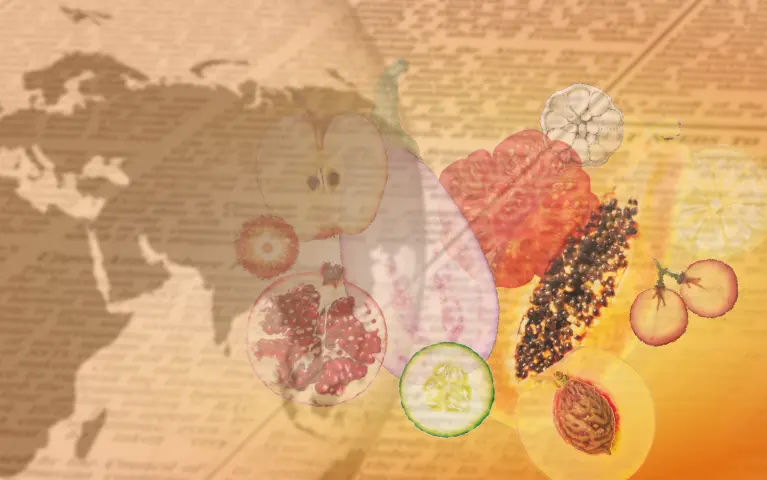

Fruit and vegetable transport opens its capital to new financial and industrial partners

Alimarket Gran Consumo The fruit and vegetable transport market is witnessing a wave of share sale operations in the search for new financial support for the companies' expansion plans and the creation of more diversified groups. This is the case of Primafrio, Agustín Fuentes and ESP Solutions, all three consolidated in the top ten and with the intention of continuing to extend their infrastructure network both in Spain and abroad. All of this, moreover, in an environment of rising costs, but with record prices for road transport thanks to the new regulatory changes and the implementation of the diesel clause.
The fruit and vegetable transport market has been in a period of steady growth for years. First, the pandemic and then the tensions in the supply chain have put a damper on the demand for its services, forcing it to rely on an ever stronger structure and a solid cash flow capacity to cope with the much-needed expansion. In order to fulfil this roadmap, the sector has taken a new shareholder course and has decided to open up its capital, until now a long-standing family tradition. Two options are on the table: companies with a financial rather than industrial profile, which allow the operational management of the companies to be maintained, but with a greater investment capacity; or large transport groups with which to join forces, gain size, diversify activities, obtain synergies and reduce costs.
In the first case, the operations carried out by Primafrio, the undisputed market leader, and ESP Solutions (A.T. La Espada), also from Murcia, fit into the first category. On the one hand, Primafrio sold 49% of its shares to the North American investment fund manager Apollo Infraestructure, thus maintaining control of the company in the hands of the Conesa family. The objective? To accelerate its growth and contribute to the plan to develop new infrastructures at European level with bases located at strategic points on the continent. The first of these platforms will be located on the border between France and Germany and will be ready at the end of 2023, coinciding with the next campaign. Along the same lines, the Avior and Blantyre Capital funds took a majority stake in ESP Solutions, the sixth largest group in the sector, whose management is held by the businessman Pedro Campillo. With the arrival of the new shareholders, the transport company has reactivated the project to build new facilities in Alhama de Murcia, with 56,000 m² of negative temperature and a capacity for 120,000 pallets, which will absorb an investment of just over €14m.
Transportes Agustín Fuentes e Hijos, the second largest fruit and vegetable transporter in the country, with revenues of 180 M€ in the sector, has also begun a new business phase following its acquisition by the North American company Lineage Logistics, a specialist in refrigerated warehousing. An integration process that will allow both companies to achieve more ambitious goals than they could have achieved as independent companies, and which, at the same time, will connect the end-to-end supply chain for customers in southern Europe. The new conglomerate will have an initial turnover of around €330m in Spain, with a combined capacity of more than 1.2 Mm3 and 143,000 m2 of floor space divided into eight locations.
For its part, in order to make returns profitable and generate synergies, the multinational Logista acquired 60% of the El Mosca group in June last year. In doing so, it will take advantage of new international routes from Logista's branches in other European countries. In total, both companies have combined land transport sales of around 45 M€ for fruit and vegetables.
And the last major operation took place at the end of 2022, with the transport and logistics group Olano taking control of the shares of the La Mancha specialist Transportes Caudete. After this, the acquired company will be able to opt for new tenders, for which fleets of between 300 and 500 trucks are required, and at the same time it will reorientate its activity beyond fruit and vegetable traffic to reach a more industrial level.
Record turnover
The configuration of larger groups, which in turn implies greater concentration, also coincides with a new escalation of the main costs in fruit and vegetable transport operations. In a market traditionally marked by very tight margins, diesel alone rose by more than 40% at the end of 2022, while the costs of refrigerated vehicles increased by nearly 20%, according to the Ministry of Development's 'Observatory of Road Freight Transport Costs'.
In any case, these increases have been accompanied by an increase in average road transport prices, a historical claim of the sector, thanks to the Royal Decree-Law 3/2022 approved by the Government for the updating and revision of tariffs, depending on the variation of the pvp of diesel. Therefore, and thanks to the 18% average increase in prices with respect to 2021, the main fruit and vegetable transport companies in the country would have increased their sales by an average of 14% last year to almost €2,600 million, an all-time market record.





